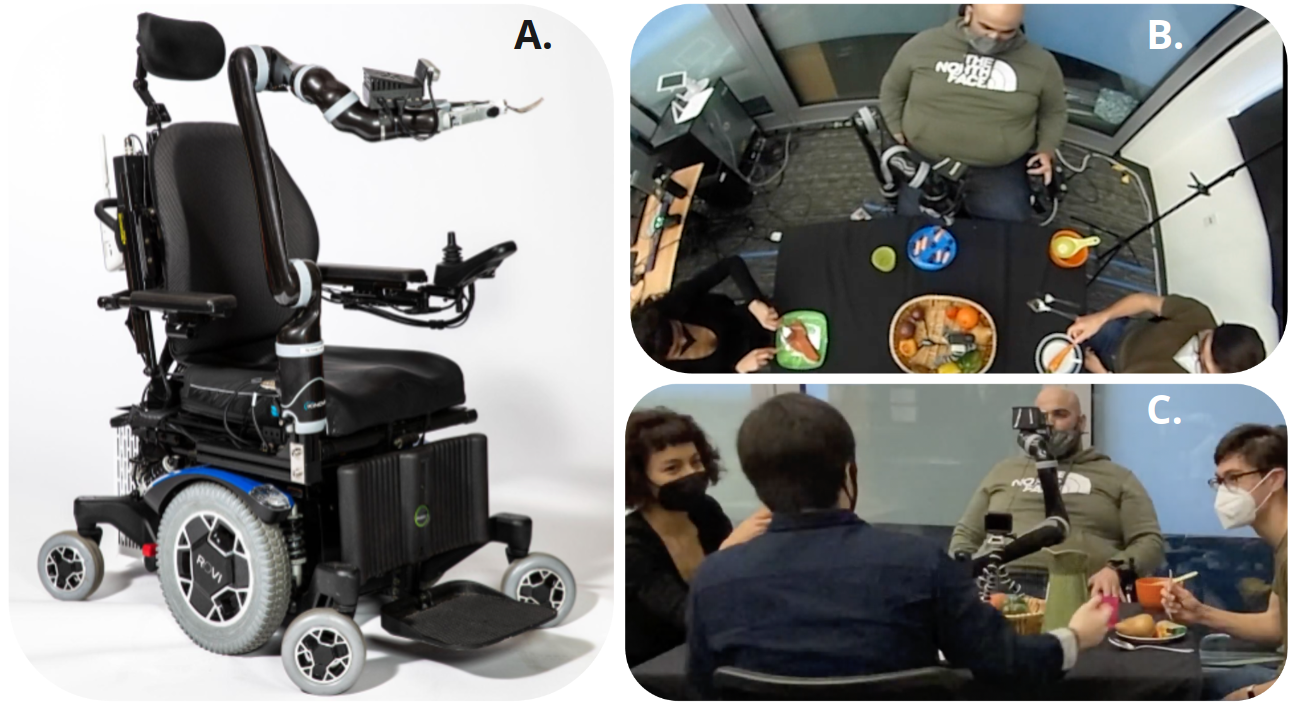Design principles for robot-assisted feeding in social contexts
Social dining, i.e., eating with/in company, is replete with meaning and cultural signifcance. Unfortunately, for the 1.8 million Ameri- cans with motor impairments who cannot eat without assistance, challenges restrict them from enjoying this pleasant social ritual. In this work, we identify the needs of participants with motor im- pairments during social dining and how robot-assisted feeding can address them. Using speculative videos that show robot behav- iors within a social dining context, we interviewed participants to understand their preferences. Following a community-based partic- ipatory research method, we worked with a community researcher with motor impairments throughout this study. We contribute (a) insights into how a robot can help overcome challenges in social dining, (b) design principles for creating robot-assisted feeding systems, (c) and an implementation guide for future research in this area. Our key fnding is that robots’ unique assistive qualities can address challenges people with motor impairments face during social dining, promoting empowerment and belonging.
